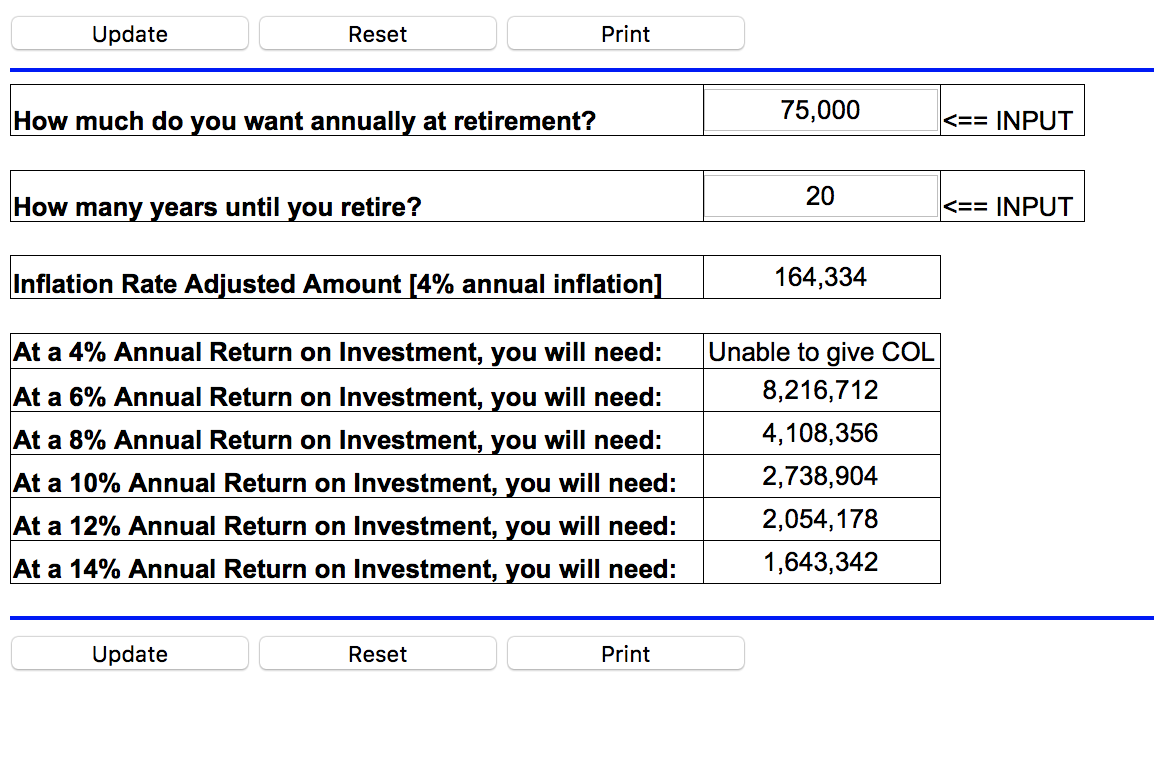Investing
Joe’s Current Investments [2020]

It’s time for one of our most popular episodes! Today, we’re talking about how to get started with investing, AND we’re sharing my Current Investments. It’s a big episode!! If you’ve ever wondered where to start, we’re here to help! In our Current Money Events segment, we’re talking about special days and how you can keep them from crushing your budget. We’ll share a tool that you can use to help you plan for these expenses. We want you to be able to truly celebrate each moment without the added worry of increasing your debt or being unable to do what you wish you could do!
Find more episodes of the Monday Money Tip Podcast HERE. Please let us know what you think by leaving us a rating!
Email info@iwbnin.com to ask questions or share success stories.
NOW AVAILABLE TO DOWNLOAD:
iTunes
Stitcher
Spotify
Website
YouTube
About the Episode:
- Today, we’re answering: “Can you tell me how to get started investing?”
- We’re also updating you on my Current Investments.
- In our Current Money Events segment, we’re talking about special days and how you can keep them from crushing your budget.
Resources:
Download Joe’s Current Investments
20-Day Savings Challenge
Next Steps Section
TOOL: Known, Upcoming, Non-Monthly Expense Calculator
Follow Joe on Facebook
Charles Schwab
Next Steps: Investing
Next Steps: Banking
Verse: “Invest in seven ventures, yes, in eight; you do not know what disaster may come upon the land.” – Ecclesiastes 11:2
Related Monday Money Tip Podcast Episodes:
Episode 20: 5 Basics of Investing
Episode 21: Making a Good Investment
Episode 22: Investment Fees
Episode 37: Joe’s Current Investments [2019]
Episode 70: The Power of Planning [Current Events Segment – Zero Trading Fees]
Episode 86: Pay Cash for Next Christmas (or a Vacation)
Is All Debt Equal?

Happy Monday! It’s a great day because another episode of the Monday Money Tip Podcast is LIVE! In this episode, we’re talking about debt, specifically, is all debt equal. We’ll discuss the different types of debt and break down what kind of debt you should avoid and if there is any debt that is ok to have. Everyone has a different opinion, so we’re breaking it down for you. In our Current Money Events segment, we’re sharing the updated contribution limits to your retirement accounts and other tax-advantaged investment accounts. Our success story comes from David, who is almost halfway up rung #4 of the I Was Broke. Now I’m Not. Ladder!
Find more episodes of the Monday Money Tip Podcast HERE. Please let us know what you think by leaving us a rating!
Email info@iwbnin.com to ask questions or share success stories.
NOW AVAILABLE TO DOWNLOAD:
iTunes
Stitcher
Spotify
Website
YouTube
About the Episode:
- Today, we’re answering: “I want to hear your thoughts on debt. Dave Ramsey says, “NO!” to all debt – except for maybe a house. Others say, “Use other people’s money.” I’m so confused. Help!”
- In our Current Money Events segment, we’re sharing the updated contribution limits to your retirement accounts and other tax-advantaged investment accounts.
- Our success story comes from David, who is almost halfway up rung #4 of the I Was Broke. Now I’m Not. Ladder!
Resources:
I Was Broke. Now I’m Not. Participant Kit + FREE Access to Online Study
I Was Broke. Now I’m Not. Group Study DVD
0% Balance Transfer Credit Cards
Article – IRS Retirement Plan Contributions
Article – IRS Internal Revenue Bulletin
IWBNIN Ladder
Debt Tools
Next Step: Debt
Other Monday Money Tip Podcast Episodes on Debt:
Episode 36 – Bite-Sized Debt
Episode 28 – 8 Ways to Speed Up Debt Elimination
Episode 19 – Is All Debt Bad?
Episode 18 – How to Pay Off Debt Quickly
401(k)’s Explained
I’m sure by this point you know it is very important to save into a retirement account so that at one point you can stop working. But this can be confusing to navigate when you are unsure of what the different accounts are and how they work. The numbers and letters are thrown around so often it can be easy to feel like you should just KNOW what everything means. But what exactly is a 401(k)?
Simply put, a 401(k) is a retirement savings plan that comes from Section 401 part k of the IRS tax code. It is what is known as a “pre-tax” investment which means that generally you are able to deduct annual contributions on your taxes each year. Once the money is in the account, it grows tax-free until you withdraw the money. At that point, you will have to pay taxes on your initial investment and also any growth that has accumulated.
If your employer has a 401(k) available for you to invest in, most times they will also offer a match up to a certain percentage. For example, some employers may match dollar for dollar up to 6%. So if you invest 6% of your paycheck into your 401(k), your employer will match that 6%. That’s FREE money!
401(k)’s can be a fantastic vehicle to accumulate money for retirement. While it can be confusing with so many different types of accounts the key is to get started saving and never turn back!
========================================================================
Want more tips like this one? Subscribe to the Monday Money Tip Podcast HERE.
How Interest Rates Work
I’m sure you have seen interest rates on a variety of different credit cards, car loans, student loans or other lines of credit. But what do these numbers mean? An interest rate is simply what you are being charged on a loan. For example, if you take out a $25,000 car loan at 5% interest, you will not only owe the original $25,000, but you will also owe an additional $1,250 in interest over the life of the loan.
Alternatively, interest can work in your favor and tell you how much you will be paid on your money. Different savings accounts, CD’s and investment vehicles tell you exactly how much interest you will be paid by putting your money in that specific account.
If you are looking to find out how you can get interest working in your favor, check out the list of online banks and investment vehicles that we recommend HERE on our website.
========================================================================
Want more tips like this one? Subscribe to the Monday Money Tip Podcast HERE.
Retirement Nest Egg Calculator
Do you know how much money you will need per year in retirement? Do you know how that number will be affected by inflation? I would encourage you to check out our Retirement Nest-Egg Calculator Tool. While it may trigger a shock to your system when you see the numbers, it can help you get into gear to retire well.
This calculator is incredibly easy to use and only needs two pieces of information from you! All you need to do is enter the amount of money you would like annually in retirement and how many years until you expect to retire. After that, the calculator will compute the amount of money that you need to have saved and how different annual rates of return will change that number.
Below you can see a calculation that I ran for an “annual amount I want” of $75,000 if I hypothetically retire in 20 years:
 As you use this calculator, keep a couple of things in mind:
As you use this calculator, keep a couple of things in mind:
- The calculator assumes that you will never touch the principal.
- The calculator assumes that you will give your nest-egg a “cost-of-living-raise” of 4% each year.
- This calculator adjusts the “annual amount your want” for an average annual inflation of 4%.
So, at 4% annual inflation, I will need $164,334 per year in 20 years to have the same purchasing power that $75,000 has today.
The bottom six rows tell you what you need to have in your nest-egg at different rates of annual growth. At 8% annual return, I would need $4,108,356 when I retire. That number drops significantly if I expect growth of 12% and I would only need $2,054,178 when I retire.
These numbers may seem astronomical and you might feel like you will never build a nest-egg of that size. But remember, the power of compound interest can work in your favor! By starting early and investing consistently, you can watch your nest-egg grow to numbers you may have only dreamed of.
========================================================================
Want more tips like this one? Subscribe to the Monday Money Tip Podcast HERE.